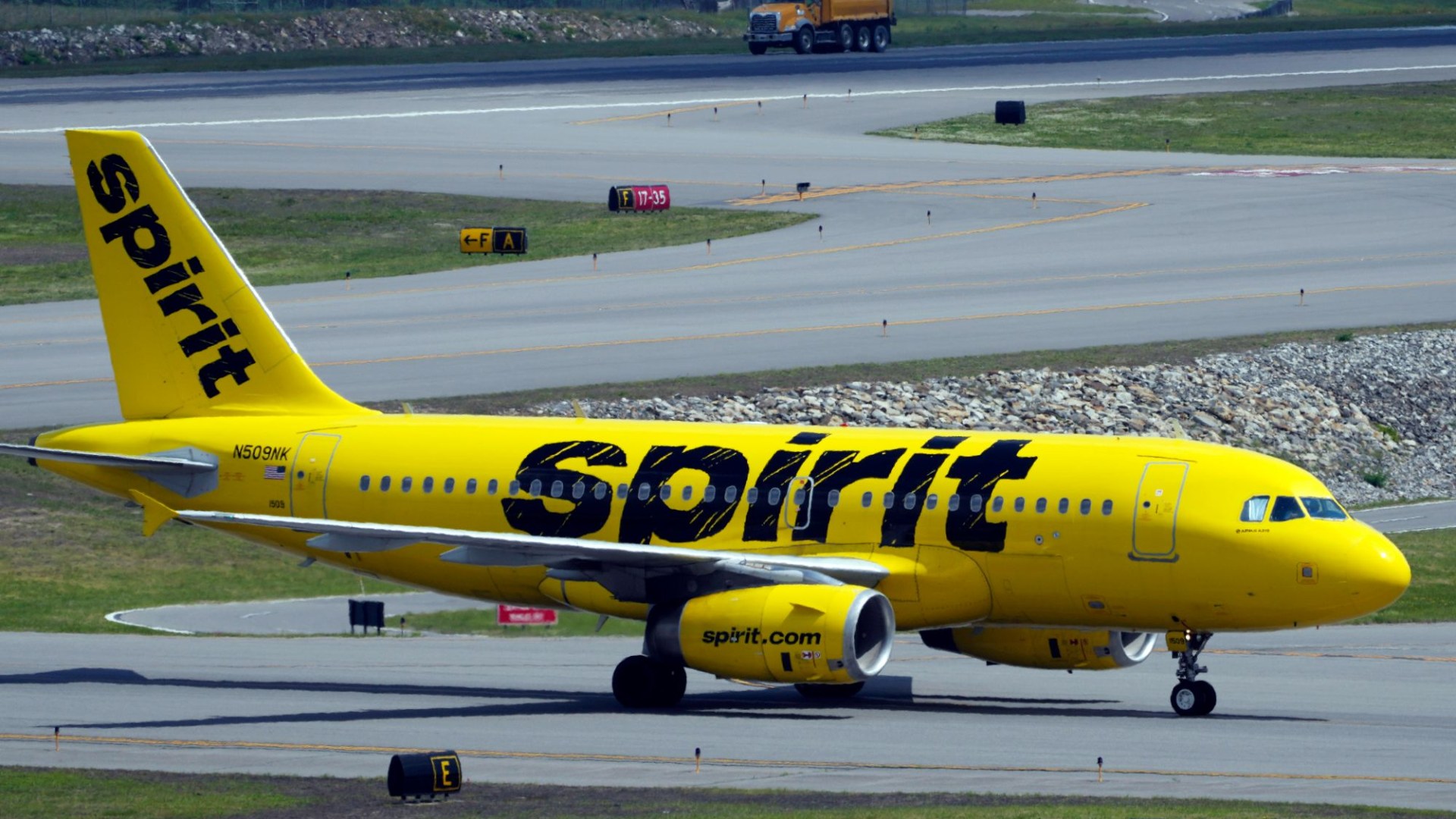SPIRIT Airlines chiefs are thought to be planning to file for bankruptcy after a proposed merger with another low-cost carrier reportedly collapsed.
Execs were in talks with Frontier bosses over a potential deal, but these are said to have broken down.
Sources told the Wall Street Journal that Spirit could file for bankruptcy within weeks.
The beleaguered carrier has around $3 billion worth of debts, and execs have been scrambling to cut costs.
Bosses have revealed the company’s revenue is around $61 million lower, and its third-quarter profit margin is 12% lower than what it was in 2023.
In fact, Spirit has not reported a profit in five of the last six quarters.
Chiefs have been negotiating deals to sell planes and have even furloughed staffers.
Spirit had agreed to sell more than 20 of its planes, and over 300 pilots will be furloughed on January 31.
Company chiefs estimated that more than $500 million would be brought into the coffers by selling the planes.
Execs furloughed 186 pilots in September and a company spokesperson confirmed 120 captains will be downgraded to the status of first officer on January 31.
The move was taken as part of efforts to try and boost profitability.
“We are implementing a series of cost savings initiatives throughout our business, including a reduction in workforce, as part of our comprehensive plan to return to profitability,” the spokesperson said.
Bosses are reportedly planning to cut costs by around $80 million next year.
The uncertainty has sparked fears that routes could be canceled, potentially plunging travelers into jeopardy.
It comes after the company’s CEO, Ted Christie, blasted the state of the airline industry, warning in an earnings call that customers are “long-term losers.”
“Today, nearly all the profits of the entire U.S. airline industry are concentrated in just two companies, while the smaller non-legacy carriers scrambled to restore profitability in what seems ever more like a rigged game,” he said.
How does bankruptcy work?

Bankruptcy is a specific legal process that helps companies eliminate debt they can’t repay.
The process allows businesses to start fresh and gain access to new credit.
Supervised by federal courts, bankruptcies allow a company to sell off its assets more easily to pay off creditors, according to Investopedia.
Chapter 11, a common process for companies, is used to restructure a business with the goal of remaining open – even if it means selling off most of the company’s properties.
Chapter 7, on the other hand, sells all of a company’s assets, putting it out of business.
Chapter 15, alternatively, allows for collaboration between American and foreign courts to conduct bankruptcy proceedings with “parties of interest involving more than one country,” per the United States Courts.
“The Big Four are the beneficiaries of this new normal.
“American consumers are the long-term losers.”
The so-called big four carriers are American Airlines, Southwest, Delta, and United Airlines.
Spirit was on the verge of merging with JetBlue, but this deal was blocked earlier this year.
Officials at the Department of Justice feared the deal would’ve reduced competition and see prices hiked for travelers.
Before the merger was blocked, Joanna Geraghty, the CEO of JetBlue, described the deal as a “bold and courageous plan intended to shake up the industry status quo.”
It is not just airlines that have filed for bankruptcy.
The U.S. Sun reported how chiefs at TGI Friday’s filed for bankruptcy, closing more than 100 restaurants over the past year.
Execs at the fashion brand Esprit and discount chain Big Lots have also filed for bankruptcy.



